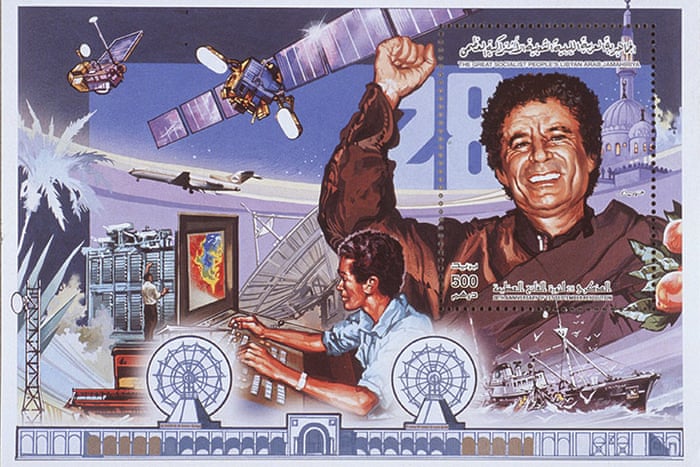Two weeks ago marked 10 years since Gaddafi was assassinated by Western-backed rebels in his hometown of Sirte following months of NATO-backed intervention in Libya.
Muammar Gaddafi governed Libya as Revolutionary Chairman of the Libyan Arab Republic from 1969 to 1977 and from 1977 to 2011 as the ‘Brotherly Leader’ of the Great Socialist People’s Libyan Arab Jamahiriya.
Libya has been gripped by turmoil since Gaddafi was toppled and killed in 2011.
Today Libya’s current political environment is described as ‘another tragic example’ of misguided Western intervention.
The anniversary of his death comes as the country prepares for the presidential elections scheduled to happen on 24 December. They will be part of a United Nations-led ‘peace process’. Since last March, Libya has been ruled by a unity government formed following a ceasefire between warring eastern and Western factions.
Colonel Gaddafi, leader of the Libyan revolution of 1st Sept 1969, was arguably one of the most controversial figures in modern history. He was loved and also hated by many. To some, he was a ‘mad man’, ‘a bigot’ and a ‘villain’. Yet, to others, he was a ‘hero’, a ‘comrade’ and an ‘anti-imperialist’. Nonetheless, many would agree that Gaddafi: 1, was a man of exceptional courage because he took on imperialist Europe and America all by himself; 2, that he was a patriot who loved his country Libya and unarguably gave Libyans more social welfare; and 3, that he was passionate about Africa’s solidarity and Arab unity. In his fundamental text The Green Book – he outlines his Afro-Arab ‘Third Universal Theory’. Although by no means Marxist-Leninist, he proposed a practical alternative to Western capitalism.
Gaddafi nationalised Libya’s oil and proposed a policy that would have seen all profits from oil evenly distributed into each citizen’s bank account. He instated a social safety net that was only provided for unemployed Libyans – they would be paid the salary of their previous job by the state. State-owned enterprises were bolstered under the colonel – banks and electricity were state-owned public services, banks provided interest-free loans and electricity was provided free to all citizens.
Education, including university, was free and literacy increased from 25% to 90% during Gaddafi’s leadership. Healthcare under Gaddafi was free and was by far the best in all of Africa. Homelessness was eradicated during this time and housing was provided free by the state, everybody owned their own homes and landlords were illegal and non-existent.
By the time of his assassination, Libya had the both the highest life expectancy and GDP per capita in the African continent. Following NATO’s intervention, the country was plunged into civil war, with a refugee crisis and slave markets emerging. 10 years on, as the country tries to put itself back together, we reflect on the true agenda behind the NATO intervention: imperialism, greed, and capitalism. Although Gaddafi had his flaws, his leadership saw him become one of the most outspoken critics of the West’s imperialist hegemony in the developing world.
Halima Abdi, is a member of the YCL’s London branch



